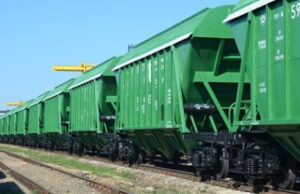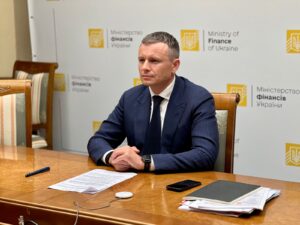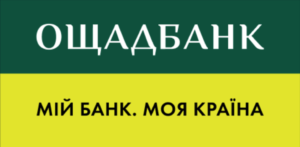
IMC Agro Holding has formed its own fleet of 150 grain carriers and intends to double it by the end of the year.
According to the agricultural holding’s website, IMC purchased 140 railcars manufactured by Kryukiv Carriage Works, and another 10 grain cars manufactured by Karpaty DMZ were received from the USAID Economic Support for Ukraine project aimed at supporting export logistics and modernizing Ukraine’s border crossing points for efficient agricultural exports.
“The emergence of our own railcar fleet in our company is a significant event. As IMC is an export-oriented company, two of the three crops we grow (winter wheat and corn) are actually fully sold to foreign markets, and the optimal export sales channel for us is rail transportation to seaports with further transportation by sea to the end consumer. Accordingly, we need to transport an average of 60-70 thousand tons of grain to the ports by rail every month. Having its own railcar fleet will allow the agricultural holding to significantly save on the cost of rail logistics,” explained IMC CEO Oleksandr Verzhykhovsky.
According to him, IMC plans to add another 150 grain carriers to its railcar fleet by the end of 2024, so that next year up to 80% of the company’s grain will be exported using its own railcar fleet.
In early August, the agricultural holding sent grain from its elevators to ports in its own grain wagons for the first time, the company said.
“IMC is an integrated group of companies operating in Sumy, Poltava and Chernihiv regions (north and center of Ukraine) in the crop production, elevators and warehouses segments.
The Group’s land bank is about 120 thousand hectares, with storage capacity of 554 thousand tons and a 2023 harvest of 1.002 million tons.
In 2023, IMC posted a net loss of $21.03 million compared to $1.12 million a year earlier, and its EBITDA decreased 11.3 times to $3.22 million. The holding’s revenue increased by 22.3% to $139.45 million, while the share of exports decreased to 68% from 73% a year earlier.

The Minister of Finance of Ukraine Sergii Marchenko and his Deputy for European Integration Yurii Draganchuk presented their vision and plans for the further implementation of the customs reform to the ambassadors and representatives of the G7 missions in Ukraine.
“The goal is to transform the Ukrainian customs into the eastern border of Europe according to EU standards and at the same time strengthen its security function… We are interested in building an efficient, high-tech and transparent customs, which will take time, informed decisions and consolidated support,” Marchenko said in a release from the Ministry of Finance on Thursday.
It is specified that the discussion concerned the steps taken by the Ukrainian government to develop and reform the State Customs Service, as well as the concept of transparent selection of customs management.
The Ministry of Finance emphasized that reforming the State Customs Service is one of Ukraine’s priorities in the process of integration into the EU.
According to the Ministry, in the first seven months of 2024, the State Customs Service exceeded its revenue plan by 5.2%, or UAH 16.4 billion, and customs revenues to the state budget amounted to about UAH 329 billion.
The customs reform is envisaged by the Plan of Ukraine under the EU’s Ukraine Facility, the National Revenue Strategy for 2024-2030, and is also one of the structural beacons under the IMF’s EFF Extended Fund Facility program.
The Ministry of Finance added that it continues to actively work on the implementation of EU customs legislation and the development of a new Customs Code, as well as on the introduction of IT and other common customs procedures to develop foreign economic activity and simplify business.
“I am convinced that further support for the reboot of the Ukrainian customs with the support of international experts will be crucial for the effectiveness of this process,” Draganchuk said.

According to the KSE Institute (Kyiv School of Economics), direct losses and indirect losses of Ukraine’s energy sector as a result of Russia’s full-scale invasion exceed $56 billion, while the industry’s recovery needs are estimated at $50 billion.
These estimates are contained in the KSE Institute’s presentation presented during a meeting with energy company executives on August 7.
According to the KSE Institute, direct losses from physical damage to energy assets amounted to more than $16 billion, while indirect financial losses, including lost revenues and costs of restoring damaged energy facilities, amounted to more than $40 billion.
In terms of individual sectors of the energy complex, the electricity sector suffered the most from the full-scale war, with direct losses exceeding $11 billion and indirect losses exceeding $18 billion.
According to KSE Institute analysts, since the beginning of the full-scale war, Russia has occupied more than 16 GW of Ukrainian generation, including the largest in Europe Zaporizhzhia NPP with a capacity of 6 GW, Zaporizhzhia, Luhansk and Vuhlehiria TPPs with a total capacity of 7.7 GW, Sievierodonetsk and Myronivsk TPPs with 0.5 GW, as well as 1.2 GW of wind power plants and 0.9 GW of solar power plants. In addition, the Kakhovka HPP was blown up – 0.3 GW.
As of April 2023, the available capacity of the power system due to the occupation and massive hostile attacks since the beginning of the war had halved to 18 GW, which corresponded to the winter peak of consumption. However, as a result of renewed attacks starting in March 2024, more than 9 GW of capacity was lost, some of which was completely destroyed.
The electricity transmission infrastructure has also suffered significant losses: more than half of the controlled high-voltage substations have been damaged. The distribution infrastructure in the frontline regions of the country is also under constant attack.
Since the beginning of the full-scale war, due to the loss of the occupied territories, mass migration, destruction of large industrial facilities and the general economic shock, electricity consumption in Ukraine has decreased by 30%.
At the same time, as the KSE Institute pointed out, Ukraine has turned from a net exporter to a net importer of electricity as a result of massive missile and drone attacks on the energy system. According to the National Bank of Ukraine, the annual volume of electricity imports could reach $1 billion, which, together with power outages and electricity shortages, is an additional blow to the trade balance, currency stability, and economic growth.
In addition, the fall in domestic demand for natural gas, the ban on its exports, and the damage to the gas infrastructure resulted in indirect losses of $5.4 billion for the gas industry. Direct losses to the sector are estimated at over $0.9 billion.
Direct losses to the oil sector since the start of the full-scale war are estimated at $2.4 billion, with indirect losses amounting to $13 billion. At least 32 oil depots have been damaged or destroyed along with fuel. All major oil refineries have been repeatedly attacked and shut down – the construction of new similar facilities could cost more than $10 billion.
In turn, as Volodymyr Kudrytskyi, Chairman of the Board of NPC Ukrenergo, stated during the KSE Institute presentation, the main purpose of the expert assessment of the damage caused to the Ukrainian energy sector by the Russian invasion should be to “present a check” to the aggressor in international courts.
“When we talk about calculating losses, this is done not only for us all to comprehend the ‘depths of the depths’ and the scale of our problems. It should also be done for a very practical, pragmatic, specific purpose: we will have to – and are already starting to actually do it – present a check to the aggressor,” he said.
As Kudrytskyi reminded, Ukrenergo and Naftogaz of Ukraine have been in the process of filing lawsuits against the aggressor state for many years regarding assets illegally seized after 2014.

Leaders of the insurance market of Ukraine in terms of premiums collected in January-June 2024 were insurance companies SG “TAS” (UAH 2.057bn), “Unica” (UAH 2.033bn), “ARKS” (UAH 1.955bn), “INGO” (UAH 1.527bn) and “Ukrainian Insurance Group” (UAH 1.409bn), according to the website of NASU.
It is noted that compared to 5M. 2024, IC “Unica” rose from the third position to the second, and IC “ARKS” took its place.
In the top-5 in the market of compulsory insurance of civil liability by collected premiums there have been no changes and following the results of six months of this year the leaders are SG “TAS” (UAH 642,3 mln), “Oranta” (UAH 605,1 mln), “Knyazha VIG” (UAH 473 mln), “ROM” (UAH 304,1 mln) and “VUSO” (UAH 201,6 mln).
The leaders in the market of “Green Card” on collected premiums for the reporting period are “TAS” (UAH 628,3 mln), “USG” (UAH 303,1 mln), “Knyazha VIG” (UAH 317,6 mln), “ROM” (UAH 258,6 mln) and “Oranta” (UAH 173,2 mln) (earlier the fifth position was occupied by IC “INGO”).
There have been no changes in the CASCO market, it is headed, as before, by IC “ARKS” (UAH 1,040 billion), “Arsenal Insurance” (UAH 865 million), “Unica” (UAH 533,7 million), “VUSO” (UAH 448,6 million) and “USG” (UAH 417,6 million).
At the same time among the leaders in voluntary health insurance there have been slight changes in the leadership, as before the top 5 in this segment is headed by IC “Unica” (UAH 907,8 mln), IC “Universalna” has risen from the fourth position to the second (UAH 386 mln), followed by IC “INGO” (UAH 342,5 mln), “ARKS” (UAH 277,7 mln), “VUSO” (UAH 270,3 mln).
According to PRIMA data, there were no changes in the leaders of the life insurance market in the first half of 2024. As before, the first position is occupied by IC “MetLife” (UAH 1,275 bln), IC “TAS” (UAH 330 mln), “Grave Life” (UAH 257,7 mln), “Unica Life” (UAH 203,5 mln) and “ROM Life” (UAH 186,7 mln).
As reported, as of the end of June 2024, 78 risk insurers operate in the insurance market of Ukraine, 12 specialize in life insurance, one – with a special status (“Export Credit Agency”, ECA).
Dynamics of import of goods in Jan-Apr 2024 by the most important items

Source: Open4Business.com.ua

State-owned Oschadbank has increased the credit limit for Druzhba-Nova, the largest cluster of Kernel’s agricultural holding, by almost four times – from UAH 340 million to UAH 1.253 billion, the bank’s press service reports.
According to the report, the funds are provided to replenish the working capital of the agricultural producer. Thanks to the funds raised, the company will be able to ensure an effective harvesting and sowing campaign this year, which will lead to an increase in foreign exchange earnings from Ukrainian exports.
“Supporting the agricultural sector continues to be a priority for us during the war, as it is not only food security, but also one of the main drivers of our economy and foreign exchange earnings in Ukraine,” said Yuriy Katsiyon, Deputy Chairman of the Board of Oschadbank in charge of corporate business.
The bank clarified that the loan portfolio of the Kernel group of companies in Oschadbank is already over UAH 2.2 billion.
Druzhba-Nova is one of the largest land clusters of Kernel, which cultivates more than 110 thousand hectares in Sumy, Chernihiv and Poltava regions. It specializes in crop and livestock production.
Prior to the war, Kernel was the world’s largest producer of sunflower oil (approximately 7% of global production) and a major exporter (approximately 12%). It is one of the largest producers and sellers of bottled oil in Ukraine. In addition, it is engaged in the cultivation and sale of agricultural products.
Kernel’s net profit for FY2023 amounted to $299 million, while the company ended the previous year with a net loss of $41 million. The agricultural holding’s revenue for FY2023 decreased by 35% to $3.455 billion, but EBITDA increased 2.5 times to $544 million.
In the first half of FY2024, Kernel’s net profit fell 3.6 times compared to the first half of FY2023 to $102 million, and EBITDA halved to $223 million on a 16% decline in revenue to $1.59 billion.
According to the National Bank of Ukraine (NBU), as of May 1, 2024, Oschadbank ranked 2nd (UAH 403.61 billion) in terms of total assets among 63 banks in the country. Last year, the financial institution’s net profit amounted to UAH 5.98 billion.